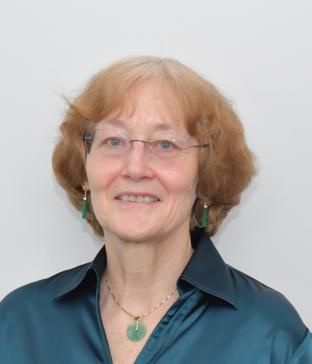Areas of Interest
The Burmeister lab works to identify the genes involved in brain disorders and the roles they play in disease processes and how they interact with the environment. They have discovered numerous genes involved in neurological disorders including deafness and ataxia. Their studies of ataxias and other rare neurological disorders involve gathering genetic information from families with these disorders and performing analyses that combine genetic linkages, genome-wide gene association studies (GWAS) and next generation sequencing (NGS).
These same novel technologies are being employed in the Burmeister lab to untangle the extraordinarily complex interaction between genetic risk factors, human behavior and environmental factors such as stress in the development of psychiatric illnesses such as depression and addictions.
Work on depression is in collaboration with Dr. Srijan Sen, a former student of Dr. Burmeister, and of addictions primarily with Dr. Mark Greenwald at Wayne State University.
This multidisciplinary approach involves the collaboration of not only geneticists, but clinicians, psychologists, epidemiologists, statisticians and bioinformaticians both here and in China, where Burmeister spends several months each year teaching and conducting research.
Research Highlights
What is (not) in our genes
Dr. Burmeister is interested in how our genetic make-up affects our behavior, and how we may modify our behavior according to genotype. One example is chronotype, whether we are early birds or night owls - if we can, early birds would get up early and work early, and night owls late. But medical interns have to go with the hospital schedule, so can’t modify their environment. In a recent study in collaborationv with Srijan Sen and Daniel Forger and his postdoc, Jonathan Tyler, we divided medical interns in “morning” types and “evening” types based purely on their genotypes. The graph below shows that those medical interns who have a genetic predisposition to be “night owls” lost much more sleep a week after the day light saving time change than those who are genetically tending to be early birds.
This is just one example of how Dr. Burmeister is thinking - we shouldn’t think of most genetic predispositions as deterministic, but as giving a basis, on which often our behavior and life style can modify outcomes - so someone with a genetic predisposition to be a night owl won’t lose sleep with DST if they can adjust their schedule, someone with a genetic predisposition to diabetes can prevent getting diabetes by avoiding eating and drinking sugar, exercising, and maintaining a healthy weight, and someone with a genetic predisposition to depression may avoid getting a depressive episode by avoiding alcohol and illicit drug use and stress.

To read more please visit https://rdcu.be/cpfvZ
Honors & Awards
Distinguished Professor, Bio-X Center, Shanghai Jiao Tong University, China
Michael Weston Visiting Professorship, Weizmann Inst. of Science, Rehovot, Israel
Fellow of the "Studienstiftung des Deutschen Volkes" (German Phi Beta Kappa Equivalent).
Postdoctoral Fellowship from the German Academic Exchange Committee (DAAD).
NARSAD Distinguished Investigator Award 2008 and many earlier NARSAD awards
Klingenstein Fellowship Award in the Neurosciences.
Alexander von Humboldt Foundation Fellowship for Sabbatical in Berlin, Germany.
EBS-MBNI Teaching Award 2016
Published Articles or Reviews
Prevalence and risk factors for depression among training physicians in China and the United States. Lihong Chen , Zhuo Zhao, Zhen Wang, Ying Zhou, Xin Zhou, Hui Pan, Fengtao Shen, Suhua Zeng, Xinhua Shao, Elena Frank, Srijan Sen , Weidong Li , Margit Burmeister. Sci Rep 2022 May 17;12(1):8170. doi: 10.1038/s41598-022-12066-y.
Genomic heterogeneity affects the response to Daylight Saving Time. Jonathan Tyler, Yu Fang, Cathy Goldstein, Daniel Forger, Srijan Sen, Margit Burmeister, Sci Rep 2021 Jul 20;11(1):14792. doi: 10.1038/s41598-021-94459-z.
When Genetics Meets Religion: What Scientists and Religious Leaders Can Learn from Each Other. Modell SM, Citrin T, Burmeister M, Kardia SLR, Beil A, Raisky J; Genetics and Faith Dialogue Group. Public Health Genomics. 2019;22(5-6):174-188. doi: 10.1159/000504261. Epub 2019 Dec 4.
Genomic prediction of depression risk and resilience under stress. Fang Y, Scott L, Song P, Burmeister M, Sen S. Nat Hum Behav. 2020 Jan;4(1):111-118. doi: 10.1038/s41562-019-0759-3. Epub 2019 Oct 28.
Heterozygous Variants in the Mechanosensitive Ion Channel TMEM63A Result in Transient Hypomyelination during Infancy. Yan H, Helman G, Murthy SE, Ji H, Crawford J, Kubisiak T, Bent SJ, Xiao J, Taft RJ, Coombs A, Wu Y, Pop A, Li D, de Vries LS, Jiang Y, Salomons GS, van der Knaap MS, Patapoutian A, Simons C, Burmeister M, Wang J, Wolf NI. Am J Hum Genet. 2019 Nov 7;105(5):996-1004. doi: 10.1016/j.ajhg.2019.09.011. Epub 2019 Oct 3.
Heroin delay discounting and impulsivity: Modulation by DRD1 genetic variation. Moses TEH, Burmeister M, Greenwald MK. Addict Biol. 2020 May;25(3):e12777. doi: 10.1111/adb.12777. Epub 2019 Jun 13.
For a complete list, visit https://www.ncbi.nlm.nih.gov/pubmed/?term=Burmeister+M%5BAuthor%5D

